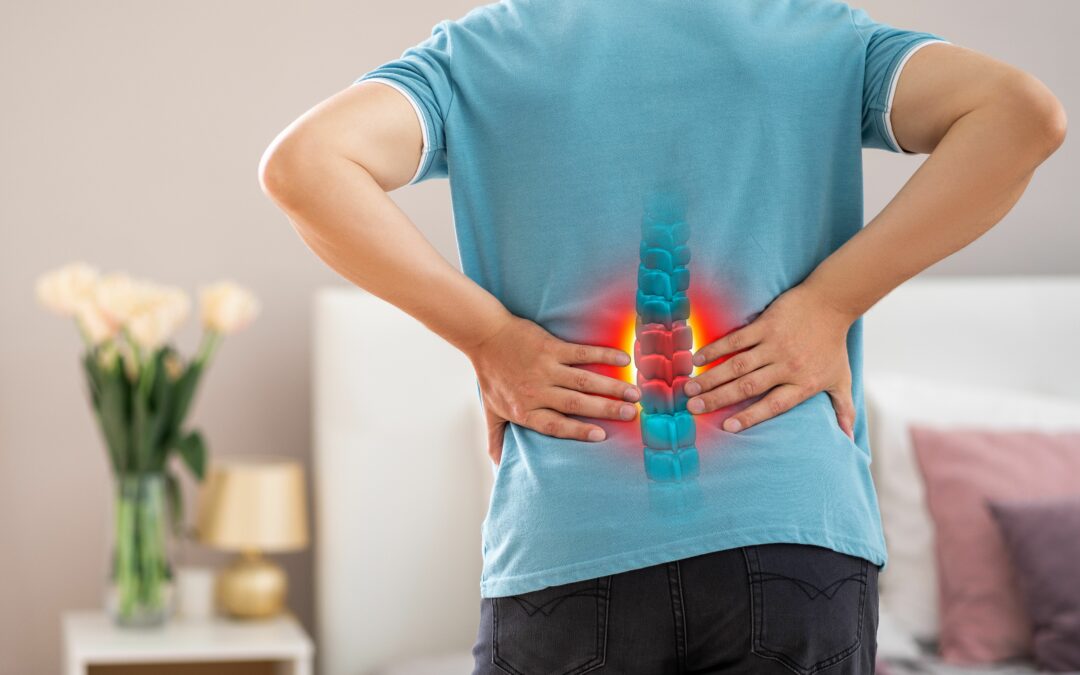Back pain is something a lot of people deal with, and it can result from various causes. Sometimes it’s because of strains and sprains from sudden movements or lifting heavy stuff incorrectly. Performing these actions may strain your back and increase the risk of a slipped disc. Here, we have shared some simple yet effective tips to help you avoid a slipped disc and minimize the risk of experiencing associated pain.
What is a herniated or slip disc?
A herniated disc, commonly known as a slipped disc or a ruptured disc is a condition when the soft inner material of a spinal disc bulges out through its outer layer. The displacement can occur due to many causes, including wear and tear or wrong posture. When the inner material bulges out, it can put excessive pressure on the nerves, causing pain, numbness, or weakness in the affected area. The treatment options may include rest, physical therapy, and medication. In severe cases, surgery may be necessary to alleviate pressure and pain on the affected nerves.
Causes of Slip Disc
A slipped disc can occur due to various factors and activities that put stress on the spine. Some common causes include-
- Improper lifting – Lifting heavy objects improperly, especially when an individual uses the back instead of the legs. It can strain the spine and lead to slip disc issues.
- Obesity – Excess body weight can put extra pressure and strain on the spine increasing the risk of slipped discs.
- Sudden injury – Accidents, falls, or sudden injuries can put excess pressure on the spine, further increasing the risk of a slipped disc.
- Smoking – Heavy smoking can decrease the oxygen supply to the spine, leading to faster degeneration and more prone to slip discs.
- Age-related wear and tear – With age the spinal disc gradually loses water content and elasticity which increases the risk of a herniated or slipped disc.
How to prevent slip disc or herniated disc?
Preventing a slipped disc involves adopting healthy habits, maintaining good posture, and being mindful of your body.
Follow these simple tips to reduce the risk of a slipped disc.
Maintain a good posture
Always maintain an aligned spine to reduce the risk of slipping discs, and be mindful while sitting, standing, walking, or running. Poor posture puts pressure on the lower back and the spine. So, it’s recommended to keep your head, shoulder, and back straight by performing day-to-day activities.
Exercise regularly
Engage in exercises that strengthen your core muscles, including the abdomen and back. A strong core provides better support for the spine and reduces the risk of disc-related issues. Focus on activities like yoga, aerobics, cardio, and mat exercises under professional guidance.
Lift objects properly
When lifting heavy objects, it’s important to avoid bending the back, which can cause strain on the spine. It’s recommended to bend your knees and use your leg muscles to lift objects by keeping them close to your body. Avoid bending at the waist to protect the spine.
Avoid prolonged sitting hours
Do not sit for long hours and take short breaks in between. Incorporate movements throughout the day by standing up, stretching, and walking around regularly to prevent stiffness and pressure on the back.
Use a proper mattress and pillow
It’s always advised to sleep on a mattress that supports your spine’s alignment. Similarly, use a pillow that maintains a neutral neck position while sleeping to reduce the strain and extra pressure on the back and spine.
Stay hydrated and eat well
Drink sufficient water to keep your body hydrated and well-functioning. Moreover, you can also maintain spinal flexibility by consuming enough water. Always intake a balanced diet rich in calcium, Vitamin D, and other nutrients essential for bone and spine health.
Avoid smoking
Smoking reduces blood flow to the spine, impacting the spine’s health and increasing the risk of disc degeneration and osteoporosis. For better spinal and overall health it is recommended to quit smoking.
Safe driving practice
Always adjust car seats and mirrors for a comfortable driving posture, Poor driving posture can put pressure and strain on the back that can further lead to slip discs. Moreover, it is always recommended to take breaks and long drives to stretch and relax muscles.
Maintain flexibility
Incorporate certain flexibility exercises in your routine, such as stretching or yoga. These stretching exercises help keep the muscles and ligaments supple, further reducing the risk of stiffness and strain on the spine.
Always listen to your body
Pay attention to any signs of discomfort or pain in your back or neck. If you experience any pain then it’s always the best idea to seek medical attention for better guidance and treatment plan.
Conclusion
Preventing a slipped disc requires simple yet crucial changes in your daily routine. Maintaining good posture while sitting, standing, and lifting heavy objects is the key. Regular exercise strengthens core muscles and by staying active one can significantly reduce the risk. Also, maintaining a healthy weight and refraining from smoking can positively impact spinal health.
Source – Orthopedics & Traumatology



Recent Comments